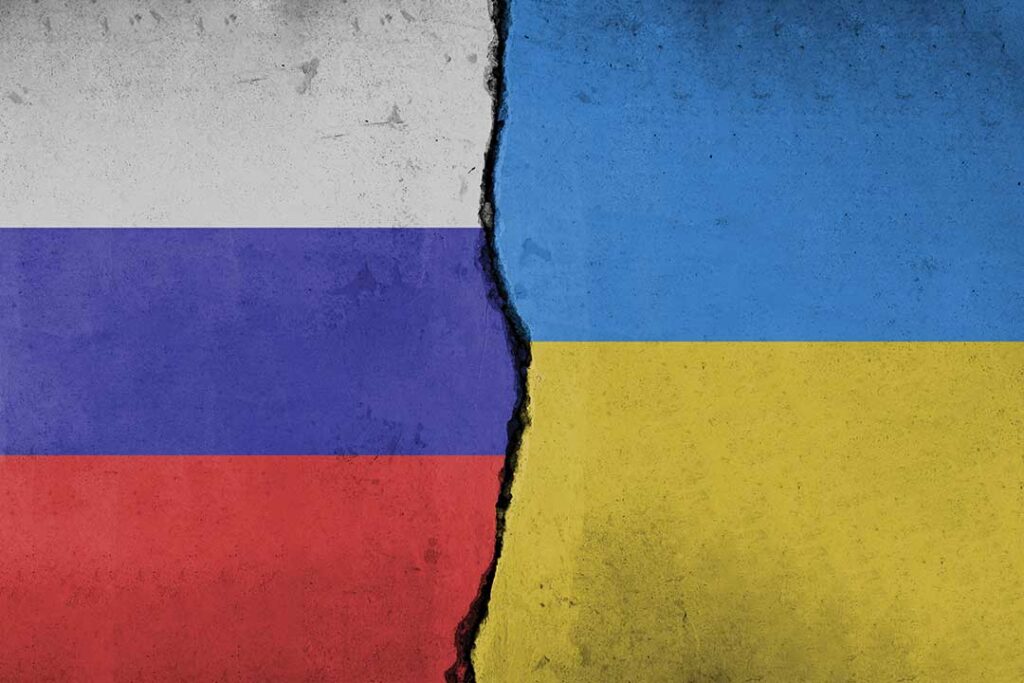Russia’s attack on Ukraine has sent destabilizing ripples not just through Europe but also through the Middle East and South and Central Asia. Whether these threats to security are direct — refugees fleeing war zones — or indirect — wheat shortages causing price rises in the Middle East — the Russian invasion has been deleterious.
Experts in the security field, both military and civilian, addressed the harm caused by Russia’s war at the 6th Great Power Competition Conference at the University of South Florida in December 2022. A particular focus of the conference was the war’s implications for United States Central Command and its partners in the region.
Lecturers and panelists at the conference suggested myriad problems exacerbated by the crisis in Eastern Europe:
It has empowered Iran, which has earned hundreds of millions of euros from selling arms to Russia. The extra income allows Tehran to increase repression at home and abroad.
It has increased the importance of the Strait of Hormuz as an international shipping corridor. The boycott on Russian oil and gas has customers looking to the Arabian Gulf for more of its fuel.
It has weakened enforcement on borders in Central Asian countries. Russia’s focus on Ukraine has reduced its ability to interrupt narcotics smuggling from Afghanistan.
It has distracted the international community from addressing insecurity in Afghanistan, allowing a resurgence of the opium/heroin trade. These drugs are crossing land and sea borders in alarming quantities.
Whether Russia has launched an “imperial war of conquest,” as in the words of one speaker at the conference, or aims to control and dominate the region indirectly, the Ukrainian war has had unforeseen consequences.
Rear Adm. Curt Renshaw, U.S. Central Command’s director of operations, noted how the hostilities have spawned an “unholy alliance” of Russia and Iran.
Iranian arms shipments — particularly hundreds of unmanned aerial systems — have earned the Iranian government cash it needs to prolong proxy wars abroad in places such as Yemen.
With Iran’s connivance, Russia has tightened its grip on Tartus naval base in Syria, from where it maintains a presence in the eastern Mediterranean Sea.
Much of U.S. Central Command’s security focus has been on protecting legal shipping and interrupting illegal shipping in and around the Arabian Gulf. Both are affected by instability bred of Russia’s invasion of Ukraine.
Combined Maritime Forces, the multinational naval coalition led by the U.S. Navy’s 5th Fleet based in Bahrain, recently identified 177 dhows as potential smuggling vessels but could capture only 33 because of ship and manpower shortages. Deploying a single destroyer in the Arabian Sea to catch smugglers is like engaging a single police car to patrol all of the U.S. state of California, Rear Adm. Renshaw said.
U.S. Central Command’s solution is to increase training, widen partnerships and invest in innovations like unmanned aerial, surface and underwater drones, and artificial intelligence. Shortages of manpower, ships and planes necessitate this approach.
“We have to cultivate deep, abiding partnerships,” said Gen. Michael Kurilla, commander of U.S. Central Command.
Russia’s waning focus on Central Asia — highlighted by recent refusals of some Central Asian countries to supply troops for Moscow’s war effort — has created opportunities for strengthened partnerships.
Foremost among those partnerships is border control cooperation. Poppy production in Afghanistan accounts for roughly 85% of the global supply of illicit opium and heroin. Nearly 500,000 Afghans work in the opium trade. Opium traffickers often operate with impunity, engaging in battles with borders guards in places such as Iran.
Because drug sales have been a major revenue stream for terrorists, counternarcotics efforts often double as counterterrorism efforts. Renshaw said it was “imperative to partner” with Central Asia states to improve Central Asian border security.
For example, Tajikistan’s rugged border with Afghanistan remains largely porous, consisting mostly of lightly manned outposts every 15 miles. Assistance from the U.S. and its partners is rebuilding borders posts, but the effort won’t succeed without investments in better reconnaissance, surveillance and intelligence-gathering.
In a keynote address at the conference, Gen. Kurilla pressed for ever more technological innovation to overcome threats from countries such as Iran and Russia, both set on violating the rules of international order. He suggested that the Middle East’s wealth and talent pool make it an ideal location for such innovation.
“CENTCOM must become the front line of innovative thought,” Gen. Kurilla said.

